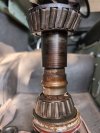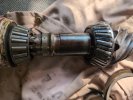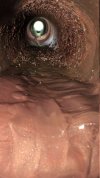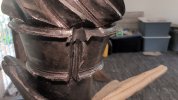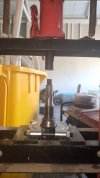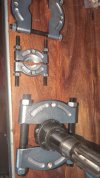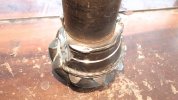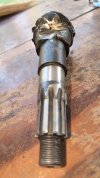Webley1991
Well-Known Member
- Posts
- 2,579
- Location
- London
I think the cover you have may have been poorly repaired after the original thread was damaged.
The old cover could still be modified by welding or brazing a threaded steel ring onto it.
Either a tapered plug or one with a shoulder and copper washer would work depending on what is easily available.
Do you know anyone with a lathe? They should be able to make the threaded ring from a piece of steel bar.
The old cover could still be modified by welding or brazing a threaded steel ring onto it.
Either a tapered plug or one with a shoulder and copper washer would work depending on what is easily available.
Do you know anyone with a lathe? They should be able to make the threaded ring from a piece of steel bar.

